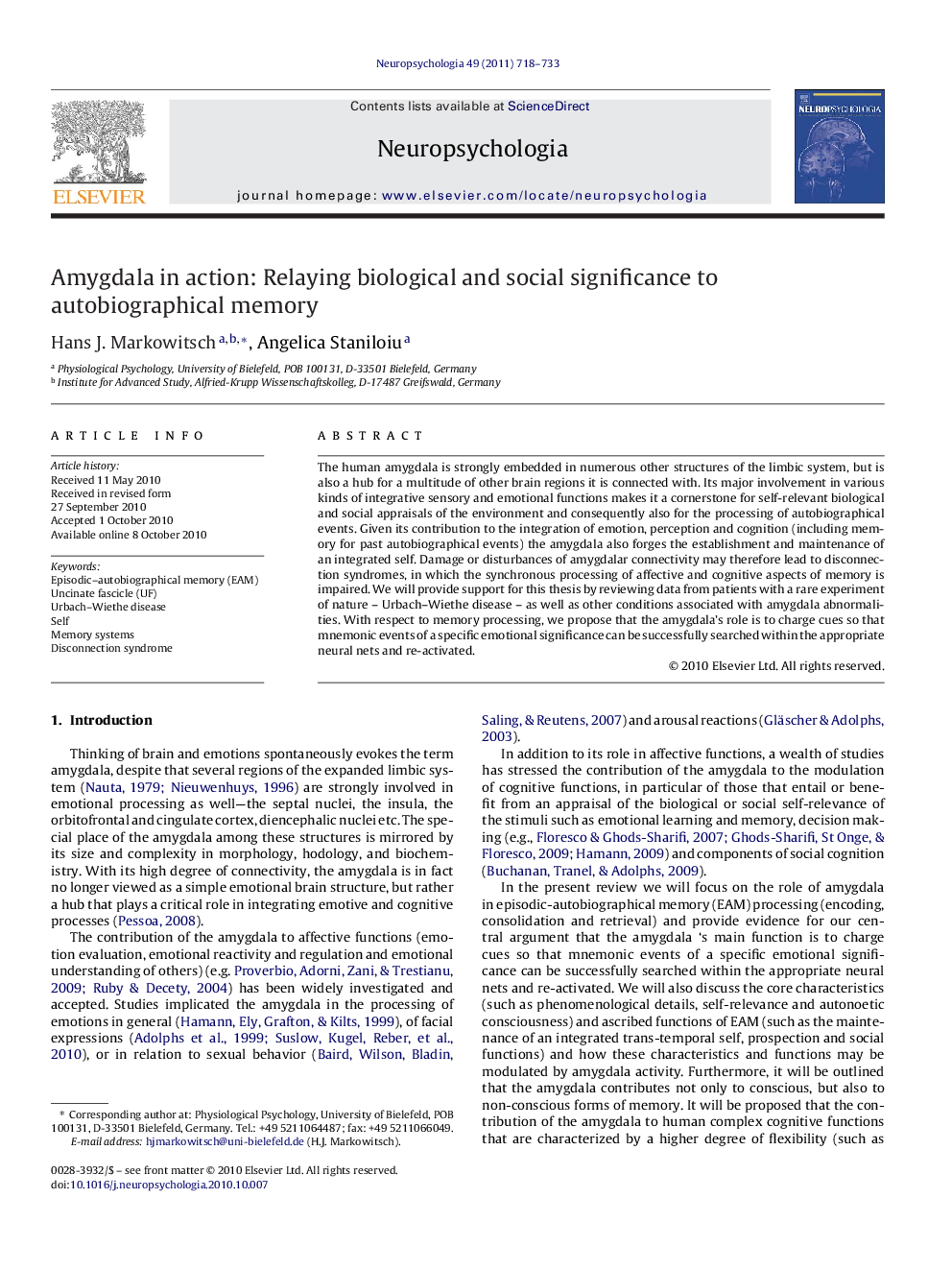| Article ID | Journal | Published Year | Pages | File Type |
|---|---|---|---|---|
| 10466042 | Neuropsychologia | 2011 | 16 Pages |
Abstract
The human amygdala is strongly embedded in numerous other structures of the limbic system, but is also a hub for a multitude of other brain regions it is connected with. Its major involvement in various kinds of integrative sensory and emotional functions makes it a cornerstone for self-relevant biological and social appraisals of the environment and consequently also for the processing of autobiographical events. Given its contribution to the integration of emotion, perception and cognition (including memory for past autobiographical events) the amygdala also forges the establishment and maintenance of an integrated self. Damage or disturbances of amygdalar connectivity may therefore lead to disconnection syndromes, in which the synchronous processing of affective and cognitive aspects of memory is impaired. We will provide support for this thesis by reviewing data from patients with a rare experiment of nature - Urbach-Wiethe disease - as well as other conditions associated with amygdala abnormalities. With respect to memory processing, we propose that the amygdala's role is to charge cues so that mnemonic events of a specific emotional significance can be successfully searched within the appropriate neural nets and re-activated.
Related Topics
Life Sciences
Neuroscience
Behavioral Neuroscience
Authors
Hans J. Markowitsch, Angelica Staniloiu,
